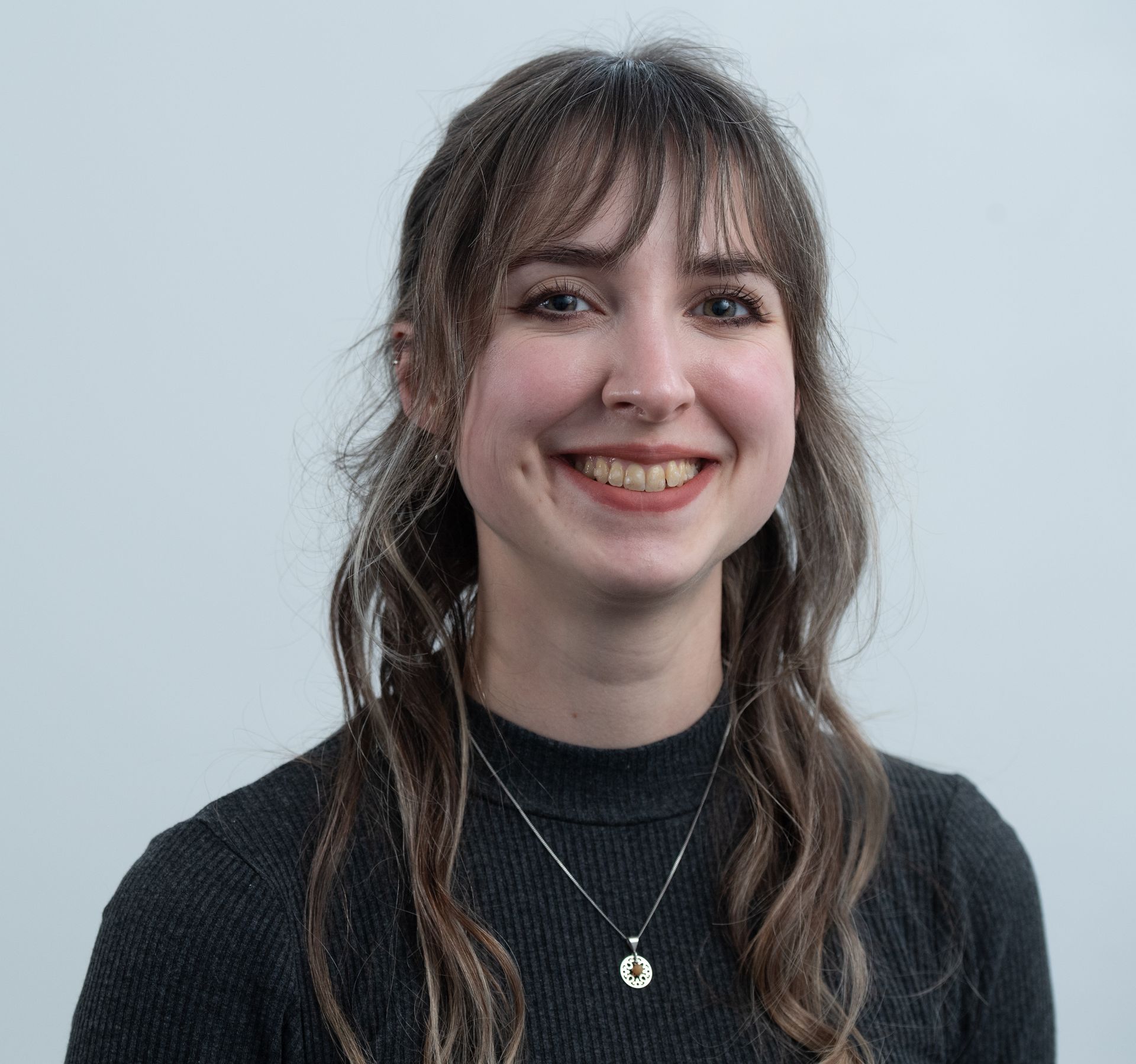BNA Credibility Advisory Board
The people guiding our activities
We are fortunate to benefit from the knowledge, enthusiasm and support of our Credibility Advisory Board, a group of people who bring different perspectives and experience related to credibility in neuroscience to the BNA, and work together to guide our activities. The Board has a meeting every 2-3 months, supported by members of the BNA Executive team.
Click on an image to find out more about each member of the Credibility Advisory Board.
Read the Terms of Reference
for more information.
Michael Ashby
Mike Ashby is a Senior Lecturer at the University of Bristol and the BNA's first Trustee for Credibility in Neuroscience following election
by the BNA membership in 2022. His research interests focus on how anatomical and synaptic plasticity coordinate to change the structure and function of neural circuits in the mammalian cortex. For the last nine years, Mike has been a member of the University of Bristol Open Access Steering Committee, which has given him great insight into the importance of open and transparent publication of findings and a passion for increasing use of coding of analytical and modelling tools across neuroscience. Mike has also published on novel statistical methods for limiting potential impact of pseudoreplication in nested, hierarchical experimental design.
Ana Dorrego-Rivas
Ana Dorrego-Rivas is a research associate at King’s College London. Her research is focused on the development and maintenance of neuronal polarity in vivo
and how it impacts neuronal function and integration into brain circuits. Ana is interested in open science practices, preprints and science reproducibility, and advocates for such causes at initiatives like ASAPbio, preLights and eLife Innovation Sprint.
Kaitlyn Hair
Kaitlyn Hair is a postdoctoral researcher within the CAMARADES group at the University of Edinburgh. During her PhD, she worked in collaboration with industry and academic partners to conduct large systematic reviews of the evidence from animal models of Alzheimer’s disease. To counter the challenges of this work, she began developing automated tools to help organise and make sense of the vast quantities of published research in this area. She is also a strong advocate for open science practices and is interested in evaluating interventions to improve research quality and reproducibility across biomedical research.
Rik Henson
Rik Henson is Professor at the Department of Psychiatry at the University of Cambridge, MRC programme lead for the Systems Neuroscience of Human Memory and its Disorders programme, and Deputy Director of Cambridge University’s MRC Cognition and Brain Sciences Unit (CBU). Rik is a member of the CBU Open Science Committee (part of the UK Network of Open Science Working Groups (UK-OSWG)) and together with colleagues recently published an article outlining the concept of Pre-Registration Posters [1] – an idea that was embraced by the BNA credibility in neuroscience programme and successfully trailed at the BNA2019 Festival of Neuroscience. As our BNA President-Elect and member of the credibility advisory board, Rik is keen to promote the value of reproducible and transparent research to neuroscientists and provide them with help and guidance as they adopt more open and reproducible workflows.
John Huxter
John Huxter is Associate Director and Cognition Lead at Transpharmation, and is CAB's industry representative. John has had more than 25 years of neuroscience experience in both academia and industry, and across diverse therapeutic areas including psychiatric disorders, chronic pain, and neurodegeneration. With a background in both behaviour and electrophysiology (UCL, University of Bristol, Oxford’s MRC Analytical Neuropharmacology Unit), he has led biomarker discovery and assay development efforts at both Pfizer and Eli Lilly before joining Transpharmation in 2020. John is passionate about the translational potential for preclinical neuroscience, and works closely with the Transpharmation teams in the UK, Ireland, Poland and Canada to explore new opportunities for drug discovery and collaboration.
Olivia Kowalczyk
Olivia Kowalczyk is a Research Fellow at the Department of Neuroimaging, King's College London and the Wellcome Centre for Human Neuroimaging, UCL. Her interests span a diverse range of topics including spinal fMRI, methods development, neuropharmacology, psychiatry, and meta-science. In her current research work, she focuses on studying the neural underpinnings of pain perception and their pharmacological modulation. Beyond her primary research work, Olivia cultivates her passion for open research by co-organising the RIOT Science Club, a seminar series raising awareness and providing training in reproducible, interpretable, open, and transparent research practices, and by serving as a UKRN Local Network Lead at King's College London.
Madeline Lancaster
Madeline Lancaster is a Group Leader in the Cell Biology Division of the Medical Research Council (MRC) Laboratory of Molecular Biology, Cambridge, UK. The Lancaster group study human brain development using an in vitro
model system called cerebral organoids (mini brains). Madeline is an advocate of open, replicable and reliable science practices and is our in vitro
representative on the BNA credibility in neuroscience advisory board. More information on the Lancaster group, as well information on useful in vitro
neuroscience protocols can be found on the Lancaster group website.
Faisal Mushtaq
Faisal Mushtaq is a Cognitive Neuroscientist and Director of the Centre for Immersive Technologies at the University of Leeds. Faisal's research sits at the interface between Neuroscience, Psychology, Engineering, and Computer Science. He is founder of the Immersive Cognition Lab which specialises in the study of learning and skill acquisition using virtual environments. With Dr Yuri Pavlov, Faisal co-leads the #EEGManyLabs project, a network of >200 laboratories working on large scale replications of the most influential studies in the field. Faisal is also a member of the Global Brain Consortium, where he is developing methods for large-scale low-cost acquisition of neural data through a novel citizen science methodology.
Llywd Orton
Llwyd Orton is Senior Lecturer in Neurophysiology in the Department of Life Sciences at Manchester Metropolitan University. He researches mammalian sensory systems, with particular focus on the relationship between hearing dysfunction and dementia in animal models. He leads the Doctor of Clinical Sciences programme at Manchester Met - a network of over 90 NHS Higher Specialist Scientific Trainees (HSST) across several physiological and life science specialisms. He has developed doctoral level training in open and replicable clinical research study design. He is particularly interested in improving the translation of data from animal models to human studies, as well as meta-science approaches.
Emily Sena
Emily Sena is a Stroke Association Kirby Laing Foundation Senior Non-Clinical Lecturer at the University of Edinburgh. She is specialised in the validity of preclinical research. Her interests are in the use of meta-research approaches (research on research) to drive improvements in the validity, transparency and reproducibility of primary research using animal models of human diseases. Her work has informed laboratory practice guidelines, editorial policy and clinical trials design. Emily is the inaugural Editor-in-Chief of BMJ Open Science, and convenor of CAMARADES.
CAB alumni
We're grateful to all former members of our Credibility Advisory Board that have supported the BNA's efforts since we launched our Credibility in Neuroscience work:
- Stafford Lightman (University of Bristol)
- Georgina Hazel (BNA)
- Uta Frith (UCL)
- Dorothy Bishop (University of Oxford)
- Anthony Isles (Cardiff University)
- Hugh Marston (Boehringer Ingelheim)
- Chris Chambers (Cardiff University)
- Verena Heisse (University of Oxford)
- Anne Cooke (BNA)
- Siobhan Crilly (University of Manchester)
- Joseph Clift (BNA)










